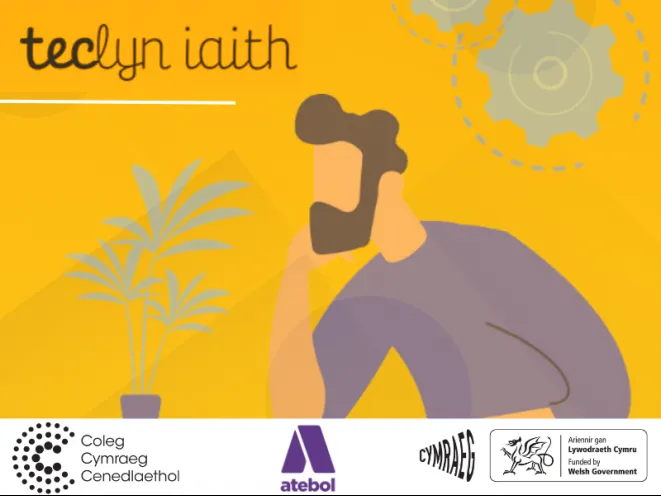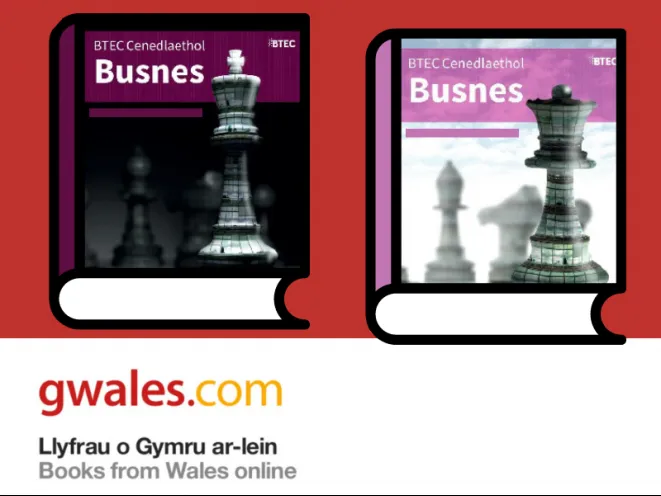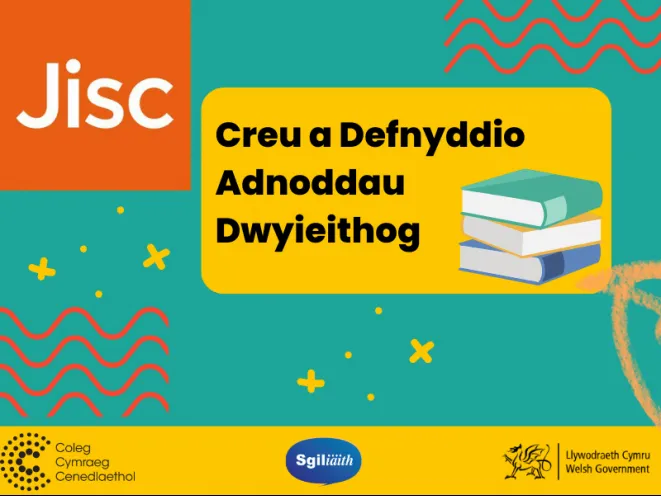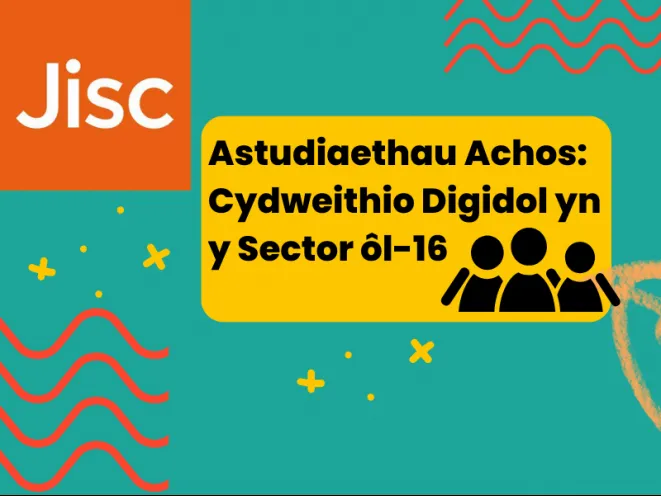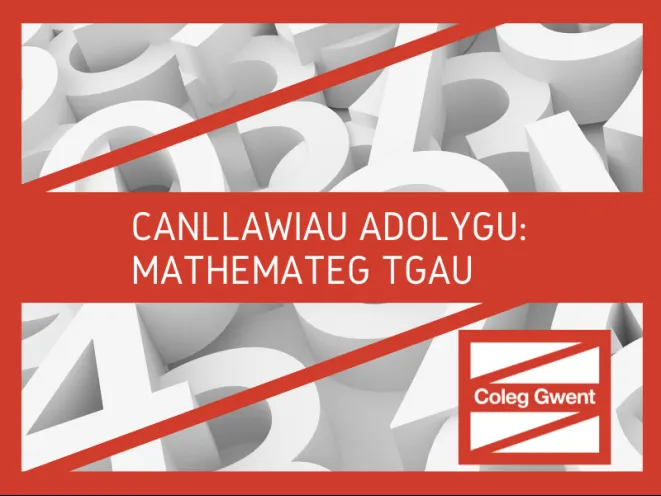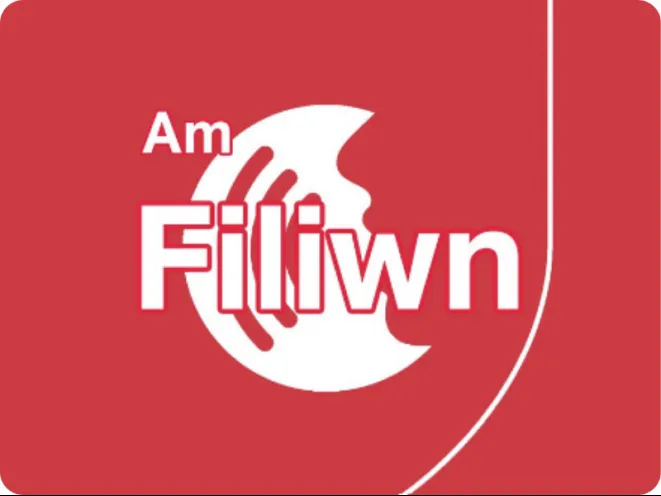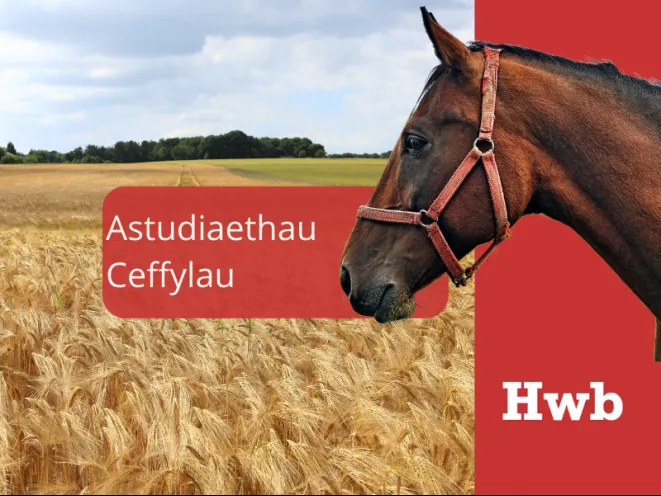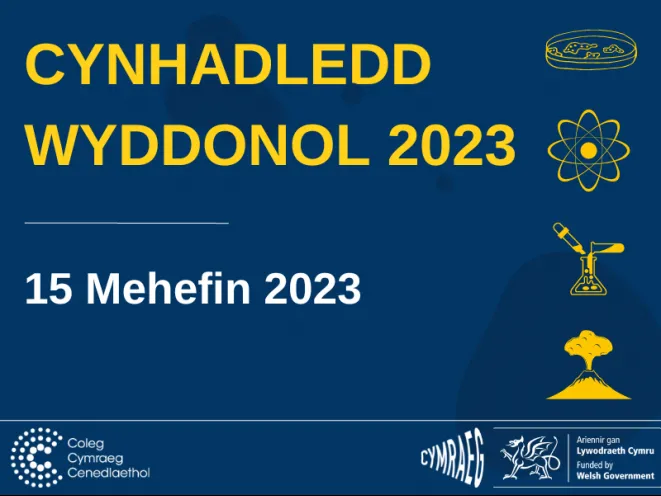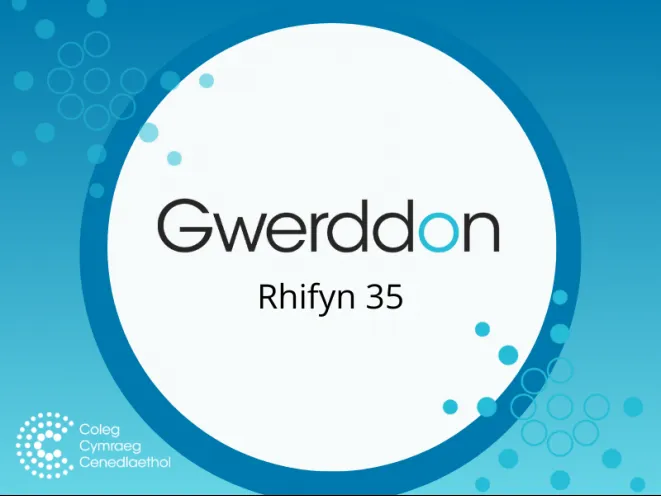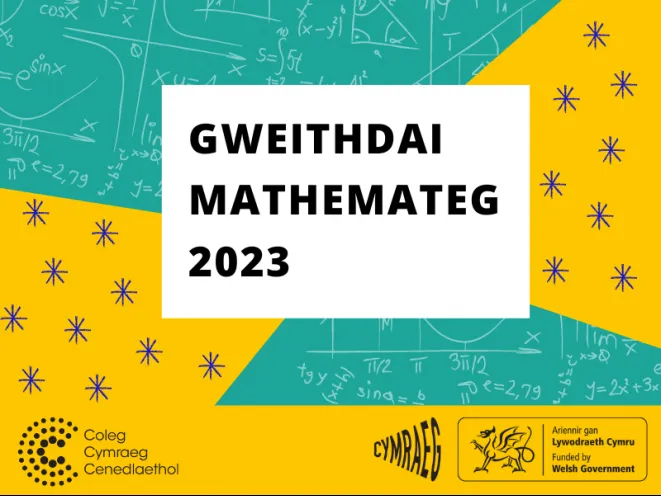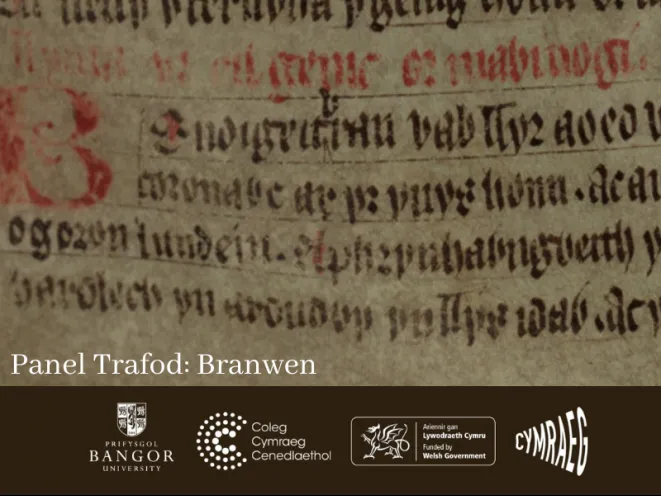This toolkit contains information about practical resources, programmes and apps that staff can use to improve their Welsh and to improve their learner's Welsh. The website is completely bilingual and suitable for everyone, whatever their Welsh language skills.
Teclyn Iaith (Welsh Toolkit)
BTEC National Business Coursebooks
A Welsh adaptation of Pearson BTEC National Business - Student Book 1 for students following the BTEC Business Certificate, Extended Certificate and Foundation Diploma. It provides support through all compulsory units and a range of choice units, e.g. Exploring Business; Developing a Marketing Campaign; Event Organising; and Customer Services Enquiries.
Creating and Using Bilingual Resources
This collection includes a blog and a recording of a webinar on creating and using Welsh medium and bilingual resources that were created by JISC in summer 2021. The blog is bilingual and the webinar is in Welsh with bilingual slides. Guest contributors to the webinar included the Coleg Cymraeg Cenedlaethol (Dr Lowri Morgans, Joanna Evans, Mary Richards and Enfys Owen), Welsh Government (Gareth Morlais) and Sgiliaith (Helen Humphreys).
JISC Case Studies: Digital Collaboration in the Post-16 Sector
Jisc is working in partnership with Welsh Government to drive forward Digital 2030, which aims to see learning providers in Wales harness the potential of digital technology underpinned by principles of innovation, collaboration, co-production and social partnership. To support this, Jisc has sourced and developed six examples of successful collaborative initiatives using digital tools and technology in post-16 learning and teaching in Wales. We outlined the key success factors for these case studies and showed where each collaborative approach could be scaled up or was beneficial to address particular issues or subjects. As a whole, these case studies offer an insight into the exciting possibilities opened up by collaboration within and across sectors, enabled by digital technology, when partners in a collaboration share a common vision and sustainable approach. Key themes supporting Wales’ digital ambitions The case studies can be seen as exemplars of the four key national priorities outlined in the Welsh Government’s call to action for FE institutions in December 2022: Work collaboratively to widen access to learning opportunities Develop learners’ and staff digital capabilities and confidence for learning, life and work Maximise the potential of technology to empower, enthuse and inspire learners Embed agile, resilient and sustainable approaches to delivery The case studies The six case studies encompass colleges across Wales and collaborations across FE and with sixth forms, HE, work-based learning and community learning (see Appendix 1). The digital tools and technology in use range from virtual classrooms and virtual reality technology to apps and collaboration platforms such as Microsoft Teams. In brief, the case studies cover: Digital Diamonds: an active Welsh community of practice helping practitioners and managers deliver Essential Skills Wales (ESW) Digital Literacy across post-16 education and training. Educ8 and CEMET (University of South Wales): developing virtual reality resources for work-based learning through a collaborative approach with HE and employers. Growing Comms: installing connected active learning spaces in HE and FE through cross-sector collaboration, with strongly positive impacts on learners. St David’s WeConnect: collaboration between sixth forms to provide a wider curriculum through virtual classrooms. Target Tracker: colleges working collaboratively to develop digital tools to support learners with additional needs. Urdd Gobaith Cymru and the Gwreiddio Scheme (Coleg Cymraeg Cenedlaethol): developing Welsh language skills through collaborative learning for apprentices and teaching staff.
GCSE Mathematics Revision Guides
Revision guides kindly provided by Coleg Gwent to assist students and learners sitting Maths GCSE exams. There are separate guides for the foundation and intermediate levels.
Am Filiwn: Podcast
A podcast that discusses aspects of education that help pupils along the road to becoming Welsh speakers, in the context of the target to reach a million Welsh speakers by 2050. The podcast will appeal to anyone completing a teacher training course, newly qualified teachers, or anyone who’s already part of the education workforce. It’s also likely to be of interest to anyone who wants to know more about the role of the education system in reaching a million Welsh speakers. It is also an excellent resource to support the Welsh Language Competency Framework for Education Practitioners.
Equine Studies
A HWB resource pack to improve the knowledge of learners following the City & Guilds: Advanced Technical Extended Diploma Level 2 and 3; BTEC Level 2 and Extended Level 3 in Equine Studies, as well as the work-based learning courses. The pack contains the following resources: Unit 1: Health and safety in the horse industry Unit 2: The signs of health and ill-health in a horse Unit 3: First aid in horses Unit 4: Horse and rider equipment Unit 5: Horse nutrition Unit 6: Preparing horses for presentation Unit 7: Shoeing
Science Conference 2023 (Welsh Medium)
The Science Conference aims to provide an opportunity for scientists to showcase their research in Welsh. Providing a space to discuss science in Welsh has been integral to Coleg Cymraeg Cenedlaethol since its inception, and the conference is going from strength to strength, with a wide range of topics being discussed, from designing a new drug to microplastics! This year for the first time it will be hosted as a hybrid conference in the Council Room, National Library of Wales, on Thursday 15 June 2023. The conference will be hosted in Welsh and simultaneous translation service will be available. To register for the conference please follow the link below. There will be an option to decide if you want to join us in person or online.
Evaluating the PERMA-profiler to identify and support pupil mental health and wellbeing in the transition to s...
Poor mental health and well-being is an unprecedented problem among children today. Seligman (2011) proposes that well-being and happiness should be supported through positive psychology approaches. The PERMA-profiler (Positive emotion, Engagement, Relationships, Meaning, Accomplishments/Achievements) (Butler and Kern 2015) requires individuals to self-assess levels of ‘flourishing’. This pilot project aimed to assess the value of the PERMA-profiler as a tool to identify the general mental health and well-being of year 7 pupils in three secondary schools. Following the first questionnaire, teachers were offered general class design strategies before pupils were reassessed at the end of the term. Results suggest the value of a self-assessment tool in identifying the overall levels of pupils’ mental health and well-being and also the early identification of individuals who may experience subsequent difficulties.
Beliefs about the intrinsic and relational value of the natural world: how do they relate to sustainable behav...
Public messages use a variety of methods to encourage sustainable behaviour (i.e. pro-environmental behaviour), including emphasizing the intrinsic value of nature (the value of nature beyond its usefulness to people) and the relational value of nature (the value of people’s relationship with nature). In this study, we present the results of a survey of adults in the United Kingdom (n = 499) who completed questionnaires that reflected the intrinsic value of nature (intrinsic value beliefs and biospheric values) and two that reflected the relational value of nature (connectedness to nature and empathy towards nature). The sample reported that they perform low-cost behaviour very often (e.g. taking short showers), consumption behaviour less often (e.g. buying a product with less packaging material), and committed behaviour very rarely (e.g. participating in conservation work). No variable predicted low-cost behaviours. Biospheric values and connectedness to nature were found to predict consumption behaviour. Only the relational value beliefs (connectedness and empathy) predicted committed behaviour. The results have implications for presenting environmental messages from the point of view of the intrinsic and relational value of nature. Recommendations are made for future work in this area.
Mathematics Workshop 2023 (Welsh Medium)
Interested in studying Mathematics at University? Want to get a glimpse of life as a Maths student and find out what career a Maths degree could lead to? This is your chance to find out more, get a taster of some modules and ask lecturers and alumni your questions! Join us in March for a series of live online Maths workshops. Thursday 9 March 2023, 7pm – Aberystwyth University. Thursday 16 March 2023, 7pm – Cardiff University. Monday 19 June, 09:30 am - Employability If you have any questions please contact l.rees@colegcymraeg.ac.uk.
Discussion Panel: Branwen
This is a valuable opportunity to hear a panel of experts and familiar faces discuss Branwen, ferch Llŷr. During the session, there will be a discussion on various aspects of the story by experts on medieval prose. The panel includes Professor Jerry Hunter and Dr Aled Llion Jones, Bangor University, and Dr Rhiannon Ifans. Specifically suitable for year 13 learners who are studying for their Unit 5 Welsh exam, but of wider interest as well. A session recorded in Pontio, Bangor, during April 2023, in collaboration between Bangor University's Department of Welsh and Pontio. Sponsored by the Coleg Cymraeg Cenedlaethol. Session in Welsh. Looking for more resources on Branwen? Watch our Ar-lên study sessions available here.

